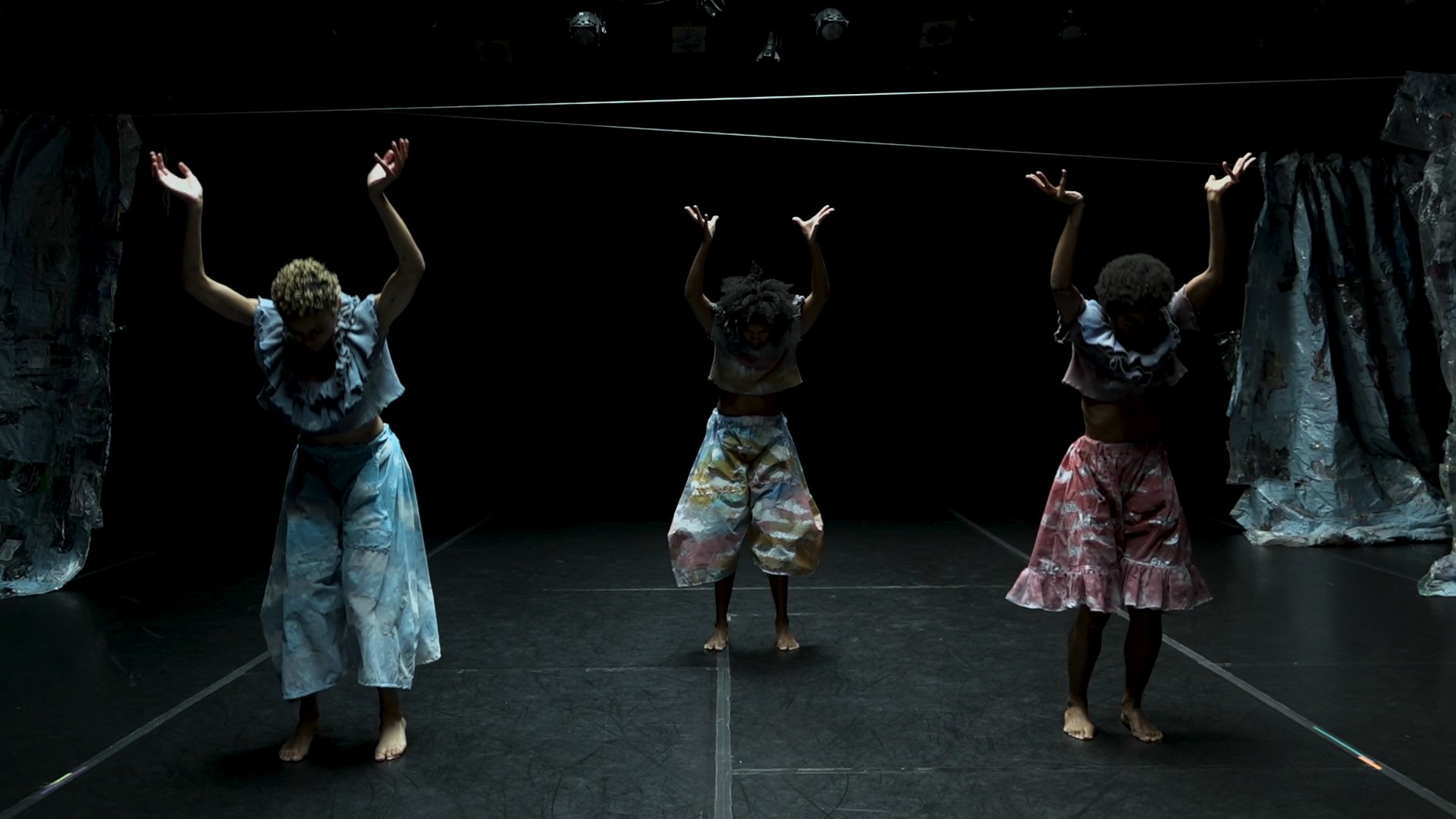in ℅: practice
in ℅: practice
September 25th -
November 13th, 2021
in ℅: practice is curated by Andrea Yarbrough and features the works of Adero Knott, Nia-Amina Minor, Racha Tahani Lawler Queen, and Blair Ebony Smith.
Opening Reception: Saturday, September 25th from 6 to 9 pm
Through contributions from Yarbrough and the exhibiting artists—Adero Knott, Nia-Amina Minor, Racha Tahani Lawler Queen, and Blair Ebony Smith—the exhibition will ask how a Black feminist approach to making objects, claiming space, and accessing history might impel cultural institutions to become more supporting, thoughtful, and responsive—in a word, more caring.
The Luminary is pleased to present its fall exhibition, in ℅: practice (in care of practice), curated by Andrea Yarbrough. This exhibition evolved from in c/o: black women, a recent project undertaken by Yarbrough (alongside Chandra Christmas-Rouse and Ebere Agwuncha) which sought to activate vacant lots in Chicago as radical sites of collective care. in ℅: practice will extend this effort into the art gallery, a space often "vacant" of care and accountability. What do our current institutions presently care about? Who or what instead would we like to see them care for? How could our current institutions be compelled to care? Considering their power structures, can they?
In their influential political statement from 1977, the Combahee River Collective wrote:
We realize that the only people who care enough about [Black women] to work consistently for our liberation are [Black women]. Our politics evolve from a healthy love for ourselves, our sisters, and our community which allows us to continue to struggle and work.
in ℅: practice activates this quality of vibrant, collective, political love as a spatial form of care that is specifically by and for Black women makers. Through a series of immersive and arresting sound, installation, and performance works, the show's five artists set out to make the radical potential of Black femme care spatially and aesthetically manifest.
Many modes of care today, however, are as contradictory and corrupted as they are potentially liberatory. While capitalist, economic forces have transformed the once-radical idea of "self-care" into little more than a marketing campaign, tenderer practices of nurturing and collectivity are consistently devalued and marginalized, often due to their feminine connotations. The Black feminist practice of care proposed by Yarbrough in this exhibition is a salve to this condition. Against the performative lip service too often paid by cultural institutions to a given moment's political fad, the artists in this exhibition set out to reclaim cultural space as a network of authentic practices and meaningful interactions.
Care is not simply the conservation of art objects or the leverage of Black makers by institutions to fulfill their mission statements of diversity. Rather, it is an intentional execution of close listening, a taking of accountability for all that has and has not been witnessed. The Combahee River Collective charged that “if Black women were free, it would mean that everyone else would have to be free since our freedom would necessitate the destruction of all the systems of oppression.” This model underscores that if cultural institutions truly desire to become sites of care and community, a rigorous study, reflection, and citations of Black feminist practices is required. in ℅: practice is a testimony to repairing corrupt cycles of harm.









